IDS staff and students have put together an essential reading and listening list for the year so far.
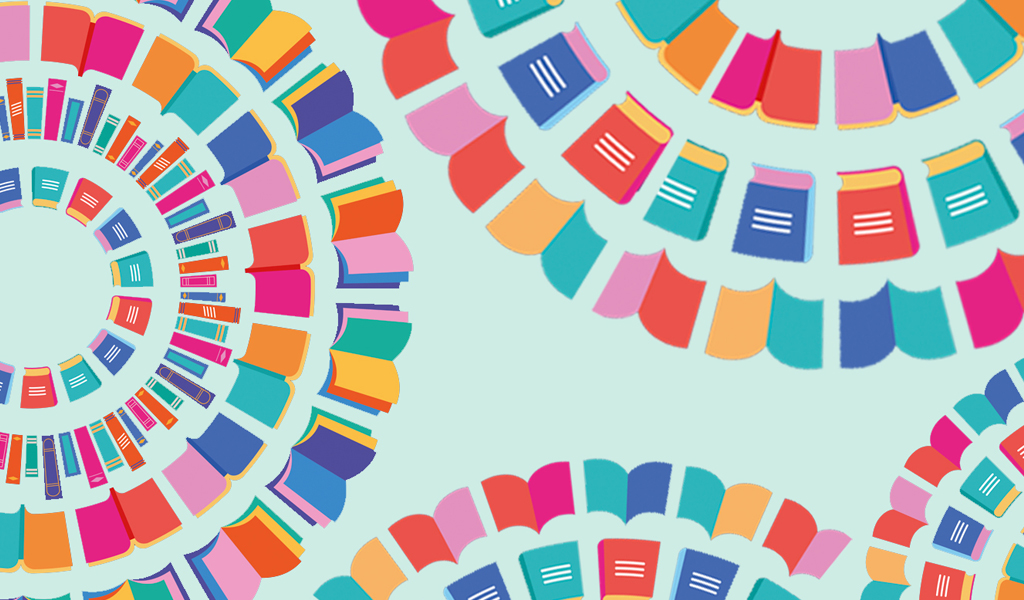
These books and podcasts cover a whole range of topical themes within development including:
- immigration
- gender rights
- climate change
- micro-finance
- financial markets
- digital technology.
All are thought-provoking, not only looking to the past, but also examining issues that will impact development in the future.
If you have a book or podcast you would like to recommend, then share them on twitter with the hashtag: #IDSReadListen and tag us at @IDS_UK.
Book recommendations
 American Dirt
American Dirt
By Jeanine Cummins
Sophie Robinson, IDS External Affairs Manager says,
This is an extremely evocative book following the story of a mother and her child fleeing danger from their hometown in Mexico, and trying to make the crossing to seek safety in America, like many others. It is a very compelling read and takes you into the heart of the ‘border crossing’ issue, that we otherwise often only hear about through short news clips, or calls in the US to ‘build the war’.
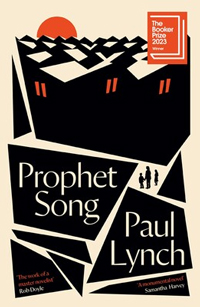 Prophet Song
Prophet Song
By Paul Lynch
Giel Ton, IDS Research Fellow says,
This book gives a highly immersive picture of how an authoritarian regime destroys people’s lives. It is situated in Ireland but is relevant for all countries where democracy is under threat, and armed conflicts take place. After reading it, you will be impressed by a mother’s strength in navigating the pressures of caring for her children and her dad while seeking a better future in a grim world. It provides an inside look into the head and history of people seeking refuge and the need to counter authoritarian backsliding.
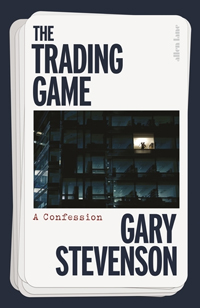 The Trading Game – A confession
The Trading Game – A confession
By Gary Stevenson
Philip Proudfoot, IDS Research Fellow says,
Gary Stevenson’s autobiographical account of how he become one of the world’s most successful FX traders is essential reading for anyone who wishes to better understand the noxious relationship between inequality and finance. We know that the global super rich – the 1 per cent – got even richer after the 2008 crisis. This book provides a highly personal window into that process of wealth grabbing. While these intersections are at the book’s core, it is also an intimate exploration of toxic masculinities, greed, corruption, mental health, individualism, neoliberalism, and addiction.
Stevenson grew up in a working-class household in East London, winning a place at LSE and then a job with Citigroup. Unlike his bourgeois contemporaries on the trading floor, Stevenson’s class background meant he knew inequality was preventing the economy from recovering post-crash. Others stuck to economic orthodoxy: things will bounce back, and interest rates will increase. But making money in the city is, as Stevenson puts, about ‘being right when everyone else is wrong.’
Stevenson quit the city at 27 and is now a well-known inequality activist, with a very popular YouTube channel. I recommend listening to the book on audiobook version, where it is captivatingly narrated by the author.
 The Colony
The Colony
By Audrey Magee
Steve Metcalfe, IDS Head of Communications says,
An English painter arrives on an island off the coast of Ireland, keen to find inspiration amongst the rugged landscape and simple way of life. Soon after, a French PhD student arrives to continue his research aimed at saving the dying Irish language.
Whilst one of the visitors has a more obvious interest in the inhabitants of the island, both appear to be mostly interested in extracting knowledge for their personal gain. Meanwhile, the Troubles loom in the background, highlighting issues of empire that influence how islanders respond to their unsolicited visitors. Will their way of life survive the foreign incursions?
Longlisted for the Booker Prize, this novel is a fascinating read about how well-meaning visitors can stir up colonial tensions, and will be particularly thought-provoking for those working on community-based research.
 We are not able to live in the sky: the seductive promise of microfinance
We are not able to live in the sky: the seductive promise of microfinance
By Mara Kardas-Nelson
Philip Mader, IDS Research Fellow says,
How did the idea of microfinance come to dominate development and the lives of so many borrowers? This meticulously researched book cleverly weaves together the stories of the globetrotting people who made microfinance a top anti-poverty intervention with the lives of borrowers living in Sierra Leone, many of whom now find themselves trapped in unmanageable debt to precisely those institutions that were supposed to rescue them from poverty.
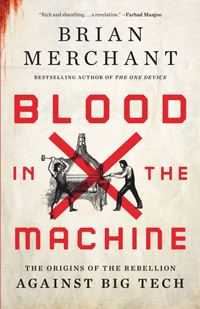 Blood in the Machine: The Origins of the Rebellion against Big Tech
Blood in the Machine: The Origins of the Rebellion against Big Tech
By Brian Merchant
Philip Mader, IDS Research Fellow says,
This book (written by the LA Times’ technology columnist) re-examines the machine-breaking acts of the 19th-century Luddites in light of today’s struggles by ordinary people against Silicon Valley’s use of AI, algorithms and gig work to transform the economy. It shows how, then as now, working people wage fights not against technology itself but against its use to enrich a few by deskilling labour and destroying the livelihoods of many.
 If We Burn: The Mass Protest Decade and the Missing Revolution
If We Burn: The Mass Protest Decade and the Missing Revolution
By Vincent Bevins
Mahdi Zaidan, IDS Project Research Officer says,
From Occupy Wall Street to Hong Kong, the world has experienced waves of mass protests rise against entrenched economic and political elites. Despite the initial thrust, most movements failed to see concrete impacts. In Egypt and Brazil, conditions worsened as authoritarian and corrupt tendencies prevailed. Instead, the world is today seeing the continued ascendancy of the reactionary forces across Europe, the Middle East, and the Americas. Why did the movements of the past two decades failed to achieve their goals? Bevin’s new book details the political, technological, and social forces (horizontalist structures, social media, and liberal values) that gave rise to new movements eventually also secured their demise. The book retells vital stories of revolutionary upheaval across the Global South leading to unexpected outcomes and many lessons for those interested in building a more just world.
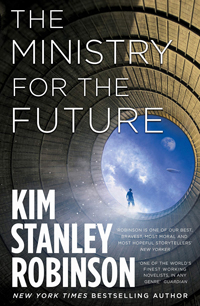 The Ministry for the Future
The Ministry for the Future
By Kim Stanley Robinson
Ben O’Donovan, IDS Communications Officer says,
The climate emergency is the greatest threat to humanity. The Ministry for the Future depicts an agency established in 2025, the purpose of which is to advocate for the world’s future generations and to protect all living creatures, present and future. Told entirely through fictional eye-witness accounts, The Ministry for the Future shows how the climate emergency will affect us all over the decades to come.
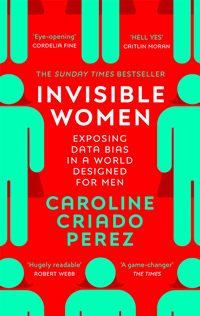 Invisible Women
Invisible Women
By Caroline Criado Perez
Harshita Kumari, IDS MA Gender and Development student says,
Invisible Women examines how women, in a world designed by and for men—particularly racially privileged white men—are often treated as an afterthought or rendered invisible. Perez unpacks the impact of this invisibility through various contexts, from public spaces and professional environments to medicine. She illustrates how design and intent frequently assume a man as the ideal user, leading to the systematic exclusion of women. These designs not only ignore women’s needs but also reinforce their invisibility.
 Africa is not a Country
Africa is not a Country
by Dipo Faloyin
Richard Longhurst, IDS Research Associate says,
Do you notice that often people say they are ‘going to Africa’ rather than specify the country, but, for example, when they might be going to France, they do not say they ‘are going to Europe’? This is a very well researched book, frequently funny; it addresses the dangerous views of stereotypes, identities and imagery of the African continent. The writing style is very engaging. The real challenges are not ignored, and topics covered are wide ranging including the white saviour image, dictatorships, mass poverty, food, colonial heritage and theft of artefacts.
And please from now on (if you don’t already) correct people when they say they are ‘going to Africa’ by asking ‘but which country?’
Podcast recommendations
 Now and Men podcast from Durham University
Now and Men podcast from Durham University
Natalie Arnold, IDS MA Gender and Development Student says,
As a student on the Gender and Development course, I was interested in the lack of cultural material exploring masculinities, so I set out to try and find something that would bridge that gap. This podcast covers topics such as porn, politics, health and even meat-eating with a nuanced discussion of how they relate to masculinity and men. I find it useful and insightful.
 The Feminist Fire
The Feminist Fire
By AWID
Ben O’Donovan, IDS Communications Officer says,
The Association for Women’s Rights in Development (AWID) narrative series unravels over 40 years of feminist movements—and reimagines a way forward. In our pilot season, you’ll hear five compelling stories that are part of a constellation of feminist activism today. Hosted by AWID’s Deputy Director of Programmes, Gopika Bashi, each episode explores unique but interconnected feminist realities that are achieving greater gender justice and human rights.
Related material
IDS, along with our project partners, publishes a range of publications each year, many of which are open access and can be found on our core websites:
- IDS Publications . Our world-class research brings an understanding of people’s lived experiences to policy and practice.
- The IDS Bulletin. The IDS Bulletin is an open access, peer-reviewed journal focusing on international development. In continual publication since 1968, it has a well-established reputation for intellectually rigorous articles developed through learning partnerships on emerging and evolving development challenges presented in an accessible manner in themed issues that bridge academic, practice and policy discourse.
- IDS Between the Lines podcast. This podcast series explores ground-breaking ideas in development for positive social and environmental change. Each month we feature an interview with an expert in international development who will talk about their latest research and ideas. Episodes content could feature authors of new books, IDS research or interviews with special guest stars.
Find out more from IDS
Sign up to our newsletters to get our research and publications delivered to your inbox.
